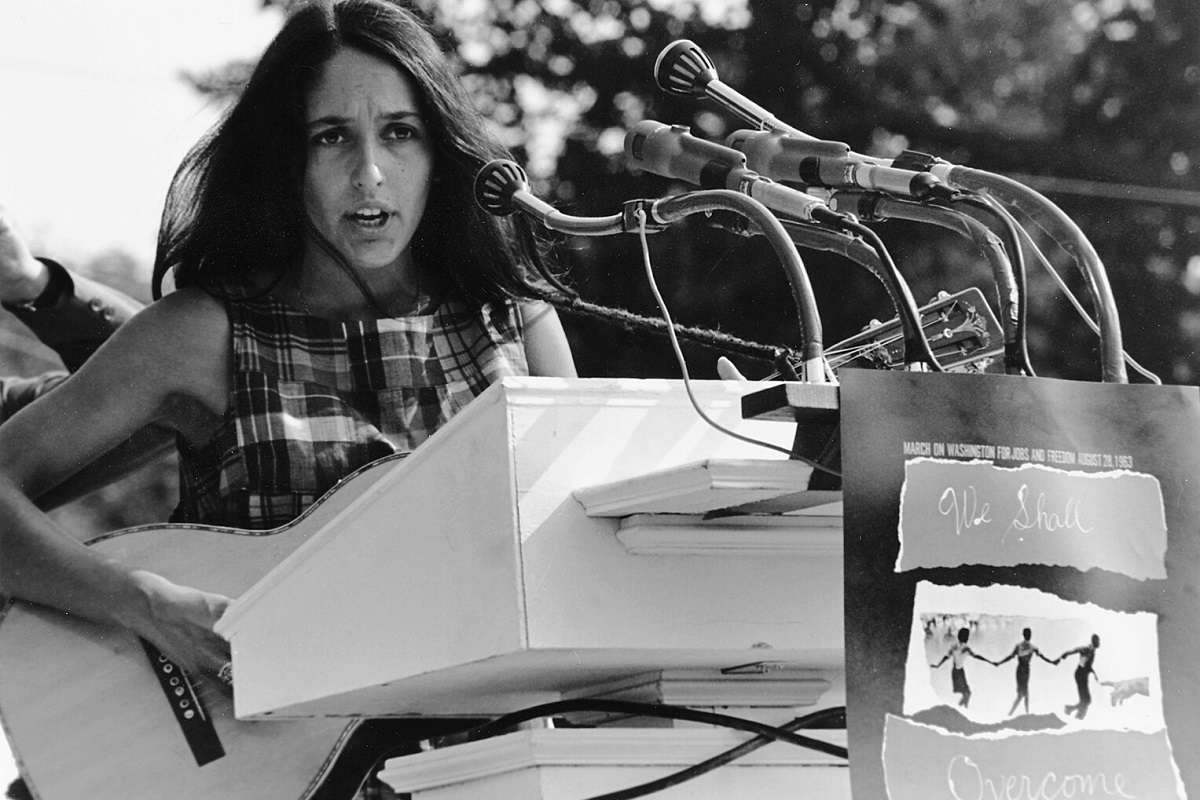Music and social movements have long been intertwined, serving not just as a soundtrack to resistance but as a potent tool for communication and empowerment.
Throughout history, songs have transcended entertainment to become rallying cries for change, influencing public sentiment and providing a voice to the voiceless.
This article explores how music not only reflects societal changes but actively participates in propelling them forward.
The emotional impact of music in protests
Songs like Billie Holiday’s “Strange Fruit” or Bob Dylan’s “The Times They Are a-Changin’” resonate deeply, evoking strong emotional responses that can transform personal grief into collective action.
Music’s ability to evoke emotion is powerful; it not only expresses solidarity and provides comfort during challenging times but also amplifies the urgency of the movement’s message.
Creating a collective identity
Anthems such as “We Shall Overcome” have united individuals from diverse backgrounds into a cohesive movement. These songs carry historical weight, lending a sense of shared purpose and destiny to contemporary movements, such as the LGBTQ rights and Black Lives Matter movements.
Music as a medium for communication
Music transcends language barriers, delivering messages that might be censored in other forms. During the Civil Rights Movement, gospel and folk songs conveyed messages of hope and resistance subtly, circumventing mainstream media channels that often ignored or misrepresented protest movements.
Bridging the message across cultures
Global influences can be seen in music’s role in protests, with songs like “Nkosi Sikelel’ iAfrika” becoming a pan-African liberation anthem. Such songs not only communicate specific political messages but also promote a broader message of unity and resilience.
Psychological influence of music in mobilizing movements
Music’s repetitive nature helps ingrain messages and ideals into the listener’s memory. This psychological imprint can manifest in collective action, as seen in protest chants and battle hymns that reinforce solidarity and resolve among activists.
Fueling endurance in prolonged struggles
In prolonged struggles, music provides sustenance. It rejuvenates the spirit and maintains morale, essential in movements like the long-standing struggle against apartheid in South Africa or recent pro-democracy protests worldwide.
The transformative power of live performances
Live musical performances at rallies and protests can turn passive participation into active engagement. Iconic performances, such as Joan Baez during the 1969 March on Washington, have not only inspired protestors but have also drawn media attention, bringing the movement’s message to a wider audience.
Uniting through rhythm and melody
The communal experience of sharing music in a live setting forges a palpable sense of connectedness and shared purpose, essential for sustaining movements.
Challenges and criticisms
Despite its significant role, the utility of music in activism isn’t without criticism. The commercialization of protest songs, for instance, can dilute their messages, and the oversimplification of complex issues into catchy lyrics can lead to misunderstandings.
Navigating commercialization
It’s crucial to critically engage with how songs are used and adapted within movements to avoid reducing profound issues to mere slogans or background music.
In conclusion, music’s role in protests and social movements is as profound as it is complex. Bridging emotional and cultural divides, music not only mirrors societal changes but motivates and manifests them.
As we continue to witness music’s evolution alongside societal upheavals, its enduring power to affect change remains unmistakable, proving time and again that when people raise their voices in song, they can challenge the status quo and encourage progress.






